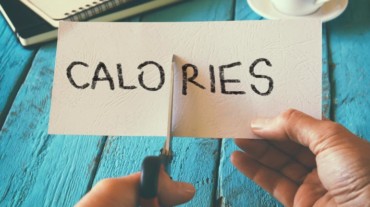
Fad diets have become the quick-fix and go-to methods for people aiming for weight loss. A lot of people are concentrating on eliminating foods from their diet instead of including foods that are healthy and nutritious. On International No Diet Day 2023, Health Shots brings you interesting insights into healthy eating and diet myths highlighted by clinical nutritionist and weight-loss specialist Leema Mahajan.
A believer of holistic health and functional foods, Leema Mahajan says people need to stop following diets blindly. No one diet is a one size fits all, she asserts.
While talking about the importance of understanding nutrition, the expert highlighted certain common myths associated with eating habits. These are mostly popular among people who are struggling for weight loss. Let’s take a look at diet myths.
According to Leema Mahajan, the biggest trending myth is ‘Calories in, calories out’. Clarifying her stance on it, she explains, “Creating a calorie deficit does matter for weight loss but that’s not the only thing that works. Variables like hormonal imbalances, sleep, certain medications and metabolic adaptations are some factors that make weight loss harder for some people.”
She also feels concerned when people consume very low calories and nutritionally poor food following this approach. “While the deficit is key, how you fuel your body through the process will decide how well you can reach your goal and then sustain it,” says Mahajan, cautioning that such diets are a sure-shot way to get nutritional deficiencies and mess up the hormonal balance.

Having worked with clients who were eating only 800 calories a day and still not losing weight, she says metabolic adaptation has a lot to do with weight loss. Crash diets can lead to side effects, and so, education about healthy eating is paramount.
“People benefit when their calorie intake is gradually increased over weeks with more nutritionally dense food. Our human body is way smarter. With drastically low calories, it shuts down other functions and focuses only on survival.”
People tend to discard fat as soon as they think of weight loss and switch to boiled and steamed food, notes Mahajan. “Fat has this reputation of being ‘The bad Guy for the Heart’. But not all fat is created similarly. Nuts and seeds are high in fat but the monounsaturated fats in them reduce the LDL cholesterol (known as bad cholesterol). Omega-3 in ghee helps fight away inflammation,” she adds.
It is important to note that fat is not only a source of energy, as is perceived. Fat cells also help produce key hormones.
But avoiding unhealthy fat sources such as margarine, soybean, palm oil and canola oil is necessary. Most bakery food items, ice creams, are rich in trans-fats. Now that’s the kind of fat you should stay away from, so choose your fat intake wisely!
Select Topics of your interest and let us customize your feed.
PERSONALISE NOWAlso read: Why are saturated fats not the enemy you always thought?

Thanks (or no thanks) to the world of social media, most nutritionists or health professionals have a unique piece of advice for living a healthy lifestyle. They may either end up cutting out essential food groups without realizing the nutritional implications, or become overly focused on one particular aspect of nutrition without considering the bigger picture. But consumers of this information need to exercise caution.
Leema Mahajan, who is herself quite popular on Instagram, says, “People often hear conflicting advice from different sources and this can lead to confusion and frustration. Incorrect information can be particularly dangerous when it involves diet and nutrition. People may take advice that isn’t backed up by scientific evidence and could end up doing more harm than good.”
It can also be hard to differentiate between good and bad advice. So, while there may be a lot of appealing ‘quick fix’ advice, it may not always be based on sound scientific evidence. Be it a high-fat diet or a low-carb diet, It’s important for people to read up on the latest nutrition research and to ask their healthcare provider for advice before making any drastic changes to their diet, says Mahajan.
Also read: Hello millennials, is your diet really worth the try?
Weight loss or weight gain – whatever your endgoal maybe, Leema Mahajan says people need to recognize that there is no single “right way to eat”.
“Everyone’s dietary needs are different and what works for one person may not work for another. It’s essential to find a diet that works for you and to listen to your body.”